All MECC 2021 programs including workshops will run in US Central Time.
Our MECC program has been finalized and published!! Please see more details here: https://ifac.papercept.net/conferences/conferences/MECC21/program!
Plenary Speakers
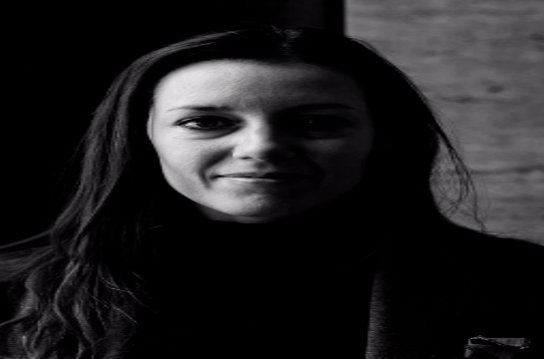
Modeling and Mitigating Molecular Loads for Genetic Circuit Engineering
Speaker: Dr. Domitilla Del Vecchio
Abstract
Genetic circuits control every aspect of life and thus the ability to engineer them de-novo opens exciting possibilities, from revolutionary drugs and green energy to bugs that recognize and kill cancer cells. Just like in mechanical, electrical, and hydraulic systems, the problem of loading, or back-action, is encountered when engineering genetic circuits. These molecular loads can be severe to the point of completely destroying the intended function of a circuit. In this talk, I will review a systems theoretic modeling formalism, grounded on the concept of retroactivity, that captures molecular loads in a way that makes the loading problem amenable of a solution. I will, in particular, focus on two types of loading: inter-module loads and loads to cellular resources that feed the modules. I will show experimentally validated models of loading effects on the emergent dynamics of a system and nonlinear control techniques that we have developed and implemented to mitigate these effects.
Biography
Domitilla Del Vecchio received the Ph. D. degree in Control and Dynamical Systems from the California Institute of Technology, Pasadena, and the Laurea degree in Electrical Engineering (Automation) from the University of Rome at Tor Vergata in 2005 and 1999, respectively. From 2006 to 2010, she was an Assistant Professor in the Department of Electrical Engineering and Computer Science and in the Center for Computational Medicine and Bioinformatics at the University of Michigan, Ann Arbor. In 2010, she joined the Department of Mechanical Engineering at the Massachusetts Institute of Technology (MIT), where she is currently Professor and member of the Synthetic Biology Center. She is a IEEE Fellow and a recipient of the Newton Award for Transformative Ideas during the COVID-19 Pandemic (2020), the 2016 Bose Research Award (MIT), the Donald P. Eckman Award from the American Automatic Control Council (2010), the NSF Career Award (2007), the American Control Conference Best Student Paper Award (2004), and the Bank of Italy Fellowship (2000). Her research focuses on developing techniques to make synthetic genetic circuits robust to context and on applying these to biosensing and cell fate control for regenerative medicine applications.

High-Performance Control for Precision Mechanical Motions
Speaker: Dr. Tsu-Chin (T-C.) Tsao
Abstract
Mechanical motion generation and vibration suppression is fundamental to modern machines and emerging innovations.
Abilities to learn and compensate for complex mechanical system and disturbance dynamics are key to synthesizing
adequate control actions to achieve precision motions. Using application case studies to motivate challenges and
demonstrate implementation results, I will present control methods for addressing narrowband (repetitive control,
iterative learning control) and broadband (adaptive control) motions and disturbances. I will attempt to convey
a common theme, controller syntheses stemming from ideas of system dynamic inversions and utilizing solutions of
optimal model matching problems.
Biography
Dr. Tsu-Chin Tsao (B.S. National Taiwan University, Taiwan, M.S., Ph.D. U.C. Berkeley),
is a Professor at the Mechanical and Aerospace Engineering Department, Henry Samueli School
of Engineering and Applied Science, University of California Los Angeles. His research interest
includes control systems, mechatronics, and robotics. An ASME Fellow, Dr. Tsao has served in
numerous leadership and editorship positions in academic and professional communities.
Recognitions of his research include ASME Journal of Dynamic Systems, Measurement,
and Control Best Paper Award, American Automatic Control Council Hugo S. Shuck Best Paper Award,
International Symposium on Flexible Automation Best Paper Award, International Federation
of Automatic Control (IFAC) Mechatronic Systems Award, and ASME Henry M. Paynter Outstanding Investigator Award.
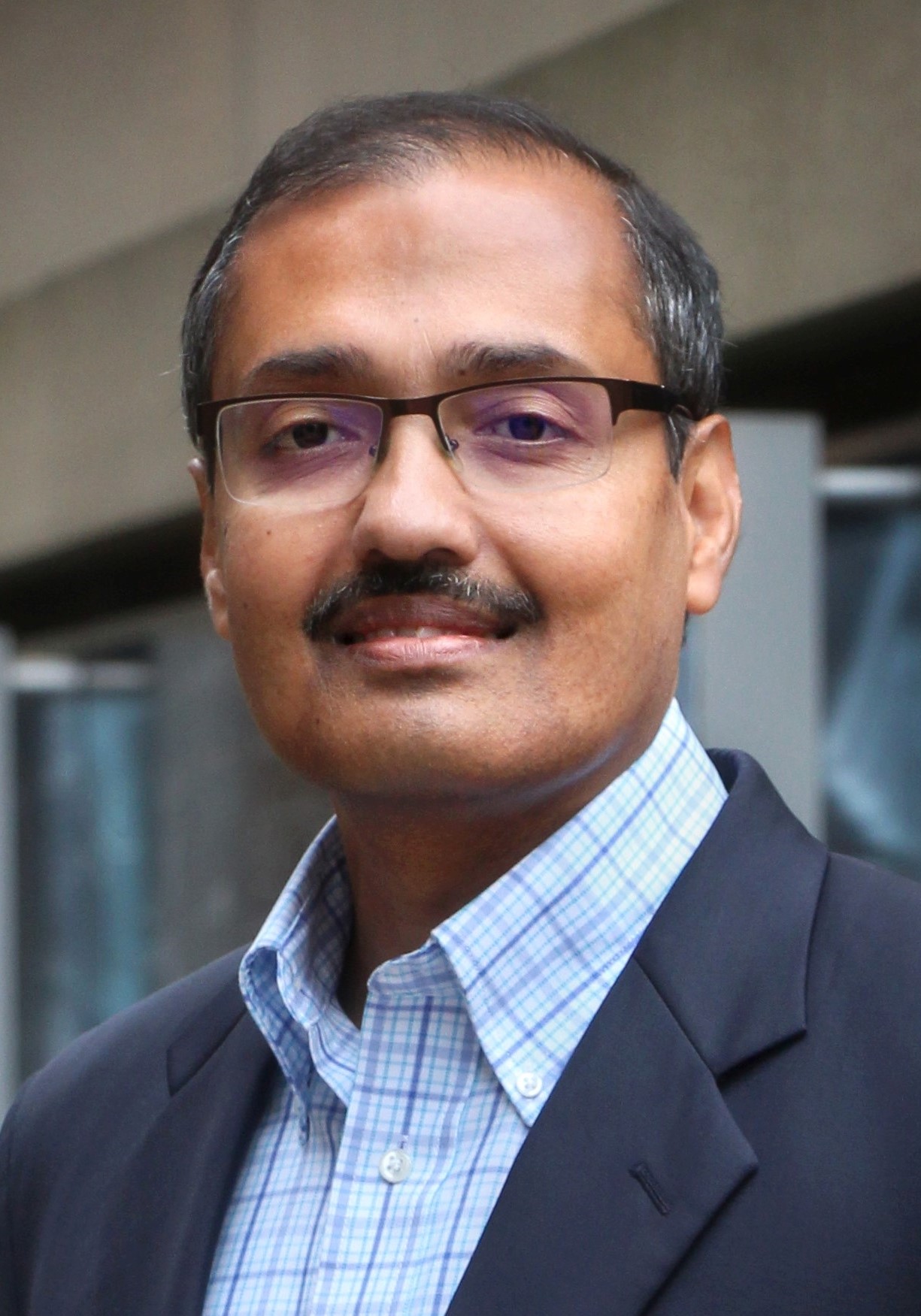
Nonlinear Observers and Everyday Applications in Motion Estimation
Speaker: Dr. Rajesh Rajamani
Abstract
This talk presents recent results in nonlinear observer design and their applications in motion estimation problems ranging from wearable sensors to bicycles. First, a new observer design technique that integrates the classical high-gain observer with a novel LPV/LMI observer to provide significant advantages compared to both methods is presented. Second, the challenges in designing observers for nonlinear systems which are non-monotonic are discussed. Non-monotonic systems are commonly encountered, but popular observer design methods fail to yield feasible solutions for such systems. Hybrid observers with switched gains enable existing observer design methods to be utilized for these systems. Following the analytical observer results, some of their applications in motion estimation are presented, including a wearable device for Parkinson’s disease patients, a smart bicycle that automatically tracks the trajectories of nearby vehicles on the road to protect itself, and smart agricultural/construction vehicles that utilize inexpensive sensors for end-effector position estimation. Each application is accompanied by a video of a prototype experimental demonstration. One of these applications has been successfully commercialized through a start-up company which expects to sell over 5,000 sensor boards this year.
Biography
Rajesh Rajamani obtained his M.S. and Ph.D. degrees from the University of California at Berkeley and his B.Tech degree from the Indian Institute of Technology at Madras. He joined the faculty in Mechanical Engineering at the University of Minnesota in 1998 where he is currently the Benjamin Y.H. Liu-TSI Endowed Chair Professor and Associate Director (Research) of the Minnesota Robotics Institute. His active research interests include estimation, sensing and control for smart mechanical systems.
Dr. Rajamani has co-authored over 160 journal papers and is a co-inventor on 17 patents/ patent applications. He is a Fellow of ASME and has been a recipient of the CAREER award from the National Science Foundation, the O. Hugo Schuck Award from the American Automatic Control Council, the Ralph Teetor Award from SAE, and a number of best paper awards from journals and conferences.
Several inventions from his laboratory have been commercialized through start-up ventures co-founded by industry executives. One of these companies, Innotronics, was recently recognized among the 35 Best University Start-Ups of 2016 by the US National Council of Entrepreneurial Tech Transfer.
Semi-Plenary Speakers:
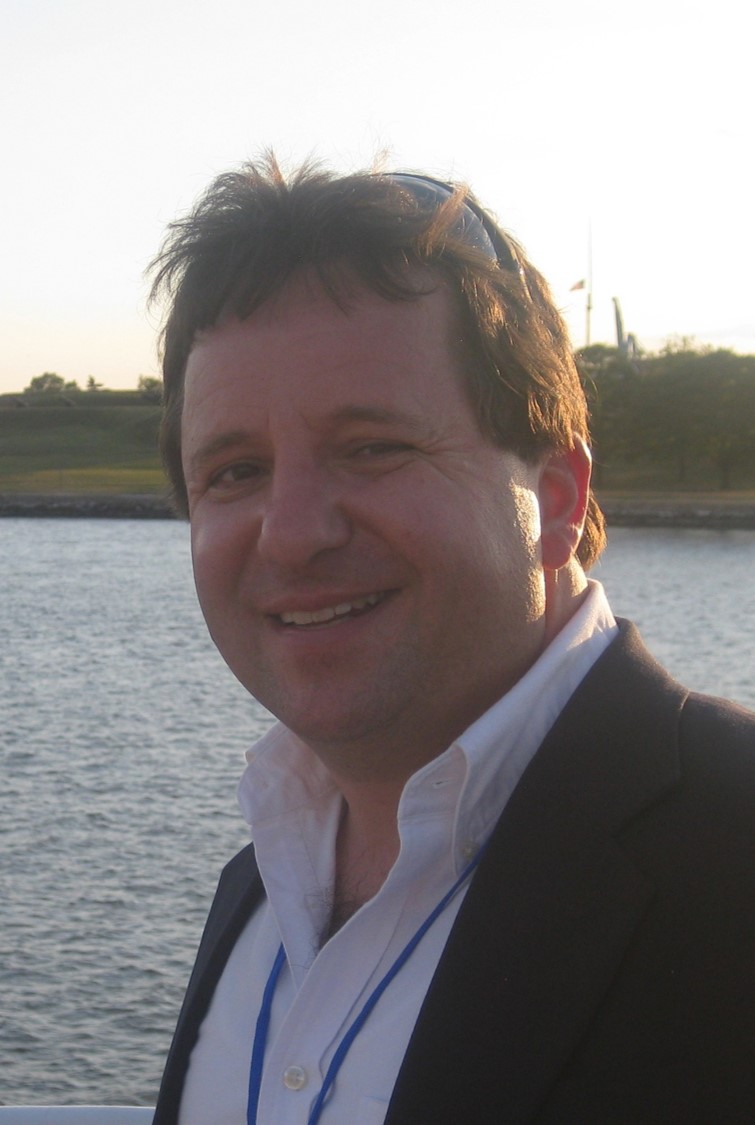
Bridging the Gap: Using Real World Problems to Unveil Deep Control Principles
Speaker: Dr. Daniel Abramovitch
Abstract
This talk is about the deep principles of control and system theory that one can uncover by working on practical control applications and physical, real-world problems. I want to convince you of something that you want to believe: that control and system theory are vital to the world at large and to the soon to be ubiquitous technologies of automated devices, vehicles, instruments, appliances, and our future robotic helpers. I also need to convince you of something most of us don’t want to believe: that we, the controls community, would vastly increase our influence on the world by refocusing our work as a framework that helps us build real-world systems rather than simply a mathematical exercise. We need to understand that for us to be the control engineers that the world needs, we must dramatically increase our outreach to practicing engineers and the general public.
To make a case for how to do this, I will present examples of industrial problems that have led not only to new products, but to new understanding about deep control principles that were not readily apparent from the theoretical side of the gap. Such insights build bridges for us to add advanced methods to a much larger group of real-world control problems. Conversely, they also drive physical motivation and context for our theory. Not only do such problems allow us to improve the results of practicing engineers, but they allow us to familiarize the wider public with the fundamental principles of control and system theory and the underlying role that they play in many familiar technologies. The world continues to see dramatic increases in devices and services that are fundamentally dependent upon the principles of control and system theory. If we, the controls research community, want to take a leadership role in this technology globalization, we have some work to do.
Biography
Dr. Abramovitch earned degrees in Electrical Engineering from Clemson (BS) and Stanford (MS and Ph.D.). After a brief stay at Ford Aerospace, he worked at HP Labs for 11 1/2 years, studying control issues for optical and magnetic disk drives. He moved to Agilent Labs shortly after the spinoff from HP, where he has spent 20 years working on test and measurement systems. He is currently in Agilent’s Mass Spectrometry Division working on improved real-time computational architectures for Agilent’s mass spectrometers. Danny is a Senior Member of the IEEE and was Vice Chair for Industry and Applications for the 2004 American Control Conference (ACC), for Workshops at the 2006 and 2022 ACCs, for Special Sessions at the 2007 ACC, and for Industry and Applications for the 2009 ACC. He was Program Chair for the 2013 ACC and General Chair of the 2016 ACC in Boston. He has organized tutorial sessions on disk drives, atomic force microscopes, phase-locked loops, laser interferometry, and how business models and mechanics affect control design. He was Chair of the IEEE CSS History Committee from 2001 to 2010. Danny is the Chair if the AACC Education Committee and an elected member of the IEEE CSS Board of Governors. Danny had the original idea for the clocking mechanism behind the DVD+RW optical disk format. He was on the team that prototyped Agilent’s first 40Gbps Bit Error Rate Tester (BERT). He and Gene Franklin were awarded the 2003 IEEE Control Systems Magazine Outstanding Paper Award. He was a Keynote Lecturer at the 2015 MSC in Sydney. His recent work for Agilent was on high speed atomic force microscopes and high precision interferometers, and currently works on improving the real-time control, data collection, and signal processing chain on Agilent’s Mass Spectrometers. He is part of the team that introduced the multi-award winning Ultivo Tandem Quad Mass Spec in 2017. He is the holder of over 20 patents and has published over 50 reviewed technical papers.

Unlost in the Woods: Modeling Lost Person Behavior for Wilderness Search and Rescue
Speaker: Dr. Nicole Abaid
Abstract
Thousands of people are reported lost in the wilderness annually and locating these missing individuals as rapidly as possible depends on coordinated search and rescue (SAR) operations. As time passes, the search area grows, survival rate decreases, and searchers are faced with an increasingly daunting task of searching large areas quickly. To optimize the search process, mathematical models of lost person behavior can be used to inform current SAR practices. In this talk, we will learn about a family of agent-based models of lost person behavior which allow agents to move on known landscapes with a stochastic behavior profile. The behavior random variable selects from a distribution of known lost person reorientation strategies to simulate the agent’s trajectory. A range of possible behavior distributions are systematically simulated and a best-fit behavioral profile is found using data from the International Search and Rescue Incident Database. This work represents the first time-discrete model of lost person dynamics validated with data from real SAR incidents and has the potential to improve current methods for wilderness SAR.
Biography
Nicole Abaid received her bachelor’s and master’s degrees in mathematics from the University of North Carolina at Chapel Hill and the University of Kansas, respectively, and her Ph.D. in mechanical engineering from the Polytechnic Institute of New York University in 2012. Until 2019, she worked as an assistant professor in the Department of Biomedical Engineering and Mechanics at Virginia Tech (formerly the Department of Engineering Science and Mechanics). Since then, she has been an associate professor in the Department of Mathematics at Virginia Tech. Her research interests include on dynamic systems, animal behavior, and bio-inspired robotics.
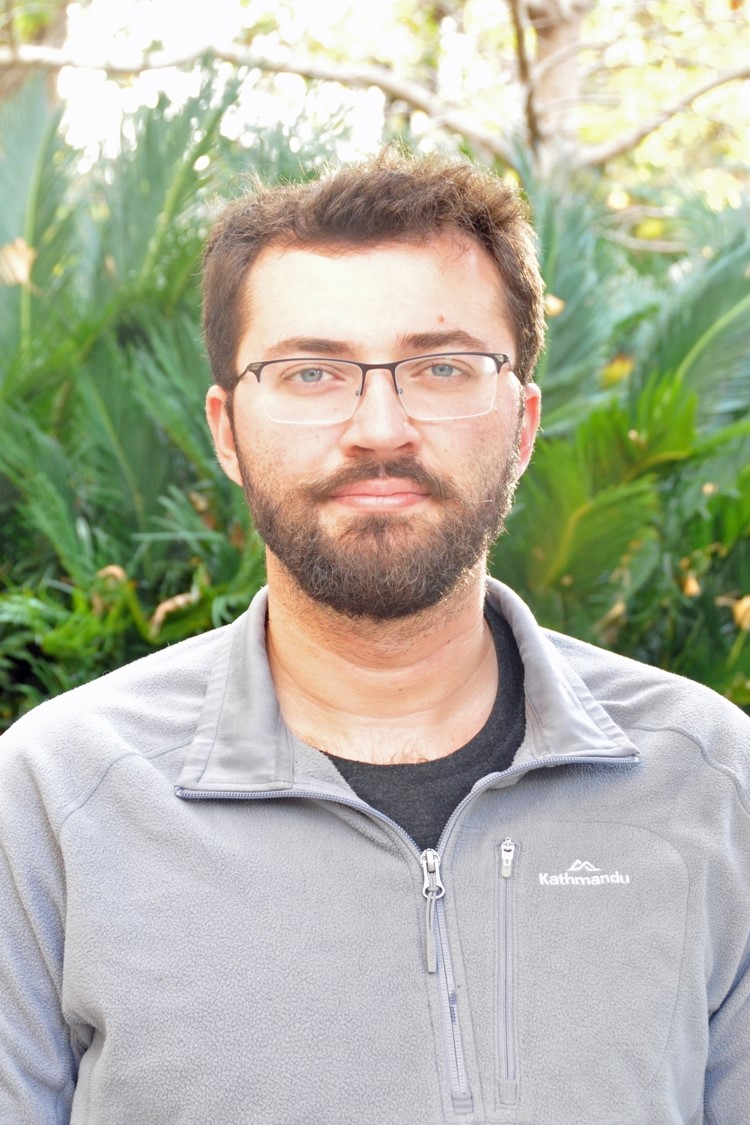
Computing, Fast and Slow: Dependable Decision Making Across Different Time, Information, and Uncertainty Scales
Speaker: Dr. Iman Shames
Abstract
In this talk we review recent advances in understanding the perception-
action loops that underpin autonomy. This involves studying the
perception, decision, and control subsystems that operate across
different time, information, and uncertainty scales. In Daniel
Kahneman's lexicon, these systems are labelled fast and slow. The slow
systems are ponderous and resource exhaustive, the fast ones are fast,
cheap, and prone to error. We discuss the steps taken to develop a
formal rigorous design framework for autonomous systems that recognises
situations when we are vulnerable to mistakes, potentially made by fast
systems, and avoid large and catastrophic eventualities when the the
stakes are high. This involves developing and using appropriate tools
and applying engineering insight to obtain guarantees and certificates
of performance that clearly describe the conditions where the system
would behave in a desired way and what can go wrong when those
conditions are not met while keeping the old proverb that "for example,
is not proof" at the back of our minds throughout. The tools developed
will be helpful to understand the behaviour of systems with many
interacting subsystems that operate across different scales beyond
autonomous systems.
Biography
Iman Shames is the Professor of Mechatronics Engineering at the
School of Engineering, the Australian National University. Previously,
he was an Associate Professor at the Department of Electrical and
Electronic Engineering, the University of Melbourne from 2020 to 2021,
a senior lecturer from 2014 to 2019, and a McKenzie fellow at the same
department from 2012 to 2014. Earlier, he was an ACCESS Postdoctoral
Researcher at the ACCESS Linnaeus Centre, the KTH Royal Institute of
Technology, Stockholm, Sweden. He received the B.Sc. degree in
Electrical Engineering from Shiraz University in 2006, and the Ph.D.
degree in engineering from the Australian National University,
Canberra, Australia in 2011. He's been serving as a member of
editorial boards for Automatica, and IEEE Transactions on Control of
Networked Systems. His current research interests include, but are not
limited to, decision making under uncertainty, optimisation theory and
its application in control and estimation, mathematical systems theory
of cyber-physical systems, and security and privacy.
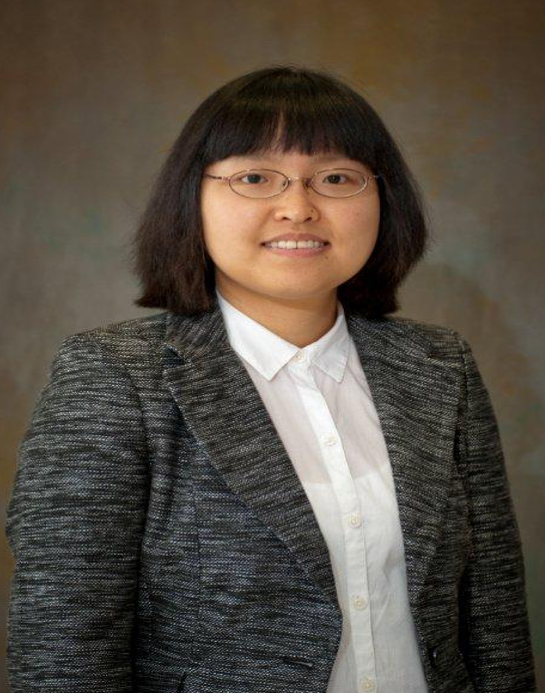
Trust and Risk in Human-Autonomy Interaction: A Systems and Control Perspective
Speaker: Dr. Yue Wang
Abstract
Robots and autonomous systems are becoming an essential component that empowers economic and human possibility and will potentially change the future of work and life. The human-autonomy collaboration integrates the best part of human intelligence with the advantages of robotic systems. Beyond performance-centric design, human intent and intelligence may be encoded into robot decision-making, motion planning, and control to achieve safer and more reliable autonomy with higher user acceptance. However, the modeling and control of human-autonomy interaction systems, especially the social and cognitive aspects of human-robot interaction, is challenging and remains an active area. The talk will begin with an overview of research in human-autonomy interaction at the Interdisciplinary & Intelligent Research (I2R) lab in the Mechanical Engineering Department at Clemson University. The background and motivation of human-autonomy integration will be introduced. The focus will be on human trust in robots and human risk attitudes during decision-making under uncertainty. Computational trust and regret modeling work will be presented, followed by trust- and regret-based robot decision-making, control, and symbolic motion planning with humans-in-the-loop. Applications in the teleoperation of unmanned aerial vehicles and unmanned ground vehicles, collaborative assembly in manufacturing, and autonomous driving will be discussed. The talk will conclude with a summary and a discussion about future research.
Biography
Dr. Yue “Sophie” Wang is the Warren H. Owen-Duke Energy Associate Professor of Engineering and the Director of the I2R laboratory at Clemson University. She received a Ph.D. degree in Mechanical Engineering from Worcester Polytechnic Institute in 2011 and held a postdoctoral position in Electrical Engineering at University of Notre Dame from 2011 to 2012. Her research interests include human-robot interaction systems, multi-robot systems, and cyber-physical systems. Dr. Wang has received the AFOSR YIP award, the NSF CAREER award, and the Air Force Summer Faculty Fellowship. Her research has been supported by NSF, AFOSR, AFRL, ARO, ARC, NASA, US Army, and industry. Dr. Wang is a senior member of IEEE, and member of ASME. She serves as the Associate Editor of the IEEE Robotics and Automation Magazine (RAM) and the ASME Journal of Autonomous Vehicles and Systems (JAVS). She is also a Technical Editor of the IEEE/ASME Transactions on Mechatronics (TMECH). Her work has been featured in NSF Science360, ASEE First Bell, State News, SC EPSCoR/IDeA Research Focus, and Clemson University News.
